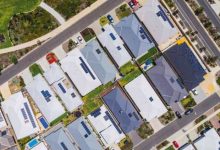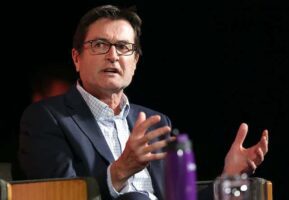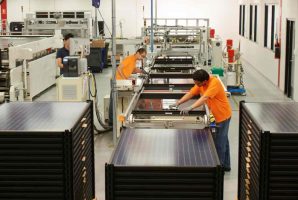The Australian Energy Market Commission has extended the deadline to receive feedback on proposed electricity rule changes that could include charges on households for exporting their excess solar power.
The proposed rule changes would enable network companies to charge additional fees for distributed energy systems, including solar, storage, electric vehicles and energy management systems, to feed power back into the grid. Advocates argue the new tariffs would enable new investment in distribution network infrastructure and help consumers optimise electricity exports.
The rule changes have been proposed by a number of consumer advocacy groups, including St Vincent de Paul Society Victoria and the Australian Council of Social Services, in partnership with the Total Environment Centre and network company SA Power Networks.
The rule change proponents argue that the existing rules were not designed with distributed energy resources in mind and that the addition of new solar and storage installations was being constrained in some parts of the energy system where networks were reaching their technical capacity to receive additional energy exports.
Part of the proposed rule changes would see distribution network companies being able to charge additional fees for households with larger rooftop solar installations to export additional power to the grid. Some households would pay an additional network access charge that would enable further investment in new network capacity and ultimately would enable the household to export additional power to the grid.
There have been some concerns raised around the concept of charging households for the ability to export their solar power to the grid. Advocacy group Solar Citizens has decried the network charges, saying the proposed rules were an unnecessary and unfair burden on rooftop solar owners.
However, the groups proposing the rule changes argue that allowing network companies to recover the cost of expanding network capacity would enable more distributed energy systems to be connected to the grid, and could provide an incentive for solar and storage systems to be optimised to supply power into the grid when it is needed most.
The AEMC says that the extended consultation period would enable further engagement with relevant stakeholders, and has followed a strong interest in the proposed rule changes.
The AEMC said that it is now aiming to publish a draft determination on the rule changes in March next year, and will consolidate what was originally a batch of three separate rule changes into a single streamlined assessment.
“Finding solutions to enable the grid of the future is a priority for us,” AEMC chief executive Benn Barr said. “We want to see a gateway to an expansion of solar and other distributed technologies that also ensures that everyone reaps the benefits of innovation.
“Australian consumers are clearly enthusiastic adopters of distributed energy resources such as solar. As distributed resources continue to grow, the time has come to integrate them properly and in a way that ensures all users benefit from their uptake and that the appropriate consumer safeguards are in place.”
“It is very important to get this right and planning ahead will avoid technical problems, keep costs down and speed up the decarbonisation of the energy sector,” Barr added.
In a submission to the proposed rule changes, the Clean Energy Council tentatively supported the new network tariff rules. In particular, the CEC said that it supported any rule change that would help avoid a blanket ban on electricity exports being implemented by network companies.
However, the CEC stressed that the overall benefits of supplies of power from rooftop solar systems should be considered before networks seek to impose fees on households exporting solar power.
“The CEC supports the proposal to recognise the role of distribution network service providers (DNSPs) in provision of ‘export services’ and ‘hosting capacity’. We also support the establishment of a framework for investment by DNSPs in DER integration,” the Clean Energy Council submission says.
“The investment framework should not be limited to consideration of costs and benefits for DNSPs. Nor should it be limited to costs and benefits for solar customers. It should consider the societal benefits and costs for all Australians.”
“The framework should take account of the benefits to all customers from the reduction in wholesale electricity prices arising from increased exports of zero marginal cost electricity generation. It should also take account of the societal benefits of reduced greenhouse gas emissions,” the CEC said.










